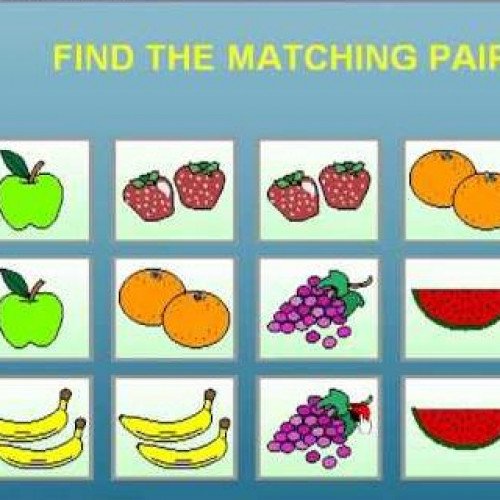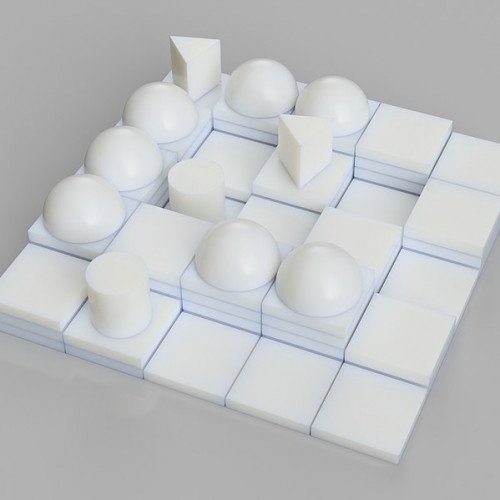MATCHING GAME VS SANTORINI

MATCHING GAME
Matching games are games that require players to match similar elements. Participants need to find a match for a word, picture, or card. For example, students place 30 word cards; composed of 15 pairs, face down in random order. Each person turns over two cards at a time, with the goal of turning over a matching pair, by using their memory. Most matching games are objective, with correct answers in the rules for what counts as a match, pair, etc. Some however, like Dixit or Apples to Apples, are about subjective matches picked by one or more judge players. Here the correlation between a match holds value only as other players decide it, but rules dictate who will make those decisions and when.
Statistics for this Xoptio

SANTORINI
Santorini is an abstract strategy board game for 2-4 players designed and released in 2004 by Gordon Hamilton and republished via Kickstarter in 2016 by Roxley Games. Inspired by the architecture of cliffside villages on Santorini Island in Greece, and primarily designed for two players, the game is played on a grid where each turn players build a town by placing building pieces up to three levels high. To win the game, players must move one of their two characters to the third level of the town. Each turn of play involves moving one of your two pieces around a 5-by-5 grid each turn and then placing a tile adjacent to the moved piece, building up that spot of the board. On subsequent turns, pieces may be moved onto one of these built-up tiles, but only one level up at a time. Pieces may also be moved down any number of levels. Players may also place a special dome tile on top of a three-level building, which prevents a player from moving onto that spot for the remainder of the game. The primary winning condition is to get one of your pieces onto the third level, though players may also win if their opponent is unable to make a move. The Roxley Games version of Santorini introduced a god powers variant, which gives each player a unique way to break the rules. After being directly released and sold by Hamilton in 2004, Roxley Games ran a Kickstarter campaign during March-April 2016, drawing over 7,100 backers and raising over C$700,000, the most successful Kickstarter campaign ever based in Alberta. While the original release used plain white blocks as components, the Roxley version featured an enhanced cartoon-like look to the game, which Hamilton credits for success of the Kickstarter campaign. The game was released in retail outlets in January 2017.